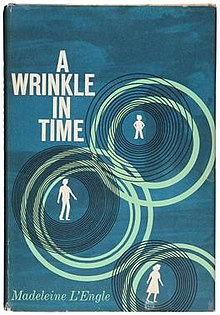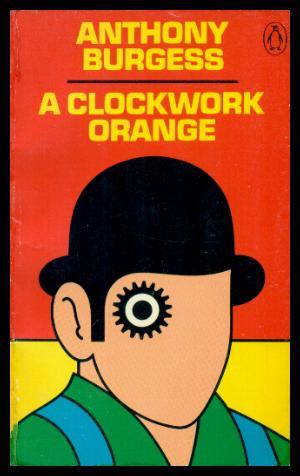
Read, read, read. Read everything -- trash, classics, good and bad, and see how they do it. Just like a carpenter who works as an apprentice and studies the master. Read! You'll absorb it. Then write. If it's good, you'll find out. If it's not, throw it out of the window.
William Faulkner
Fantasy was always one of your first loves. Who could resist another universe open to possibilities? An existence where you had a father, more stability, more boldness. You don't know the boy you would be there, but you think that people would be proud of him. A different mother would have tugged you away from the realm of fiction, but yours never believed in depriving you. You had to cope in your own way. She felt that she owed you that, at least.
Rose Heming gave you the book. Her father wasn't missing or a mystery, merely absconded to France with a new wife and new children to suit him better. She had a vocabulary twice the size of anyone your age that you had ever met, and she had vowed to teach herself French to win over her père. She knew she wouldn't have the chance to speak with him though, let alone convince him that he had made a mistake in leaving her and her mother behind.
Still, she would drop a random translation into conversation like stones to break the surface of water, to distort her reflection for just a little while.
Rose Heming gave you the book. Her father wasn't missing or a mystery, merely absconded to France with a new wife and new children to suit him better. She had a vocabulary twice the size of anyone your age that you had ever met, and she had vowed to teach herself French to win over her père. She knew she wouldn't have the chance to speak with him though, let alone convince him that he had made a mistake in leaving her and her mother behind.
Still, she would drop a random translation into conversation like stones to break the surface of water, to distort her reflection for just a little while.
It wasn't that you were an angry teenager, but you almost wished you could be. It would have been easier to find a source of your discomfort that was external so you wouldn't have to hold it in so much. You knew why you had to leave behind your old life and your friends, knew why you'd had to come to a place where your spelling and your sentence structures were no longer considered proper. You even knew why other students gave you hell about your accent even though they were young enough to consider the English more sophisticated by default.
You never identified with any of the characters, not really, but you recognized them all the same. The sneering indifference to others, the smug sense of authority, the slang so foreign and so common: it was an exaggerated world but just down the slope of what could happen if order was not maintained.
You grow. You change. You file down your accent, learn to spell in a way that won't set off spell check. You make plans for college applications that involve staying in Virginia and not hopping back across the pond. You read the book so many times the spine grows weak, but your favorite chapter is always the last, the one that the American publisher originally lopped off. Alex grows out of his violence. You will move on from being an awkward teenager too. After all, things could be worse. As could you.
You never identified with any of the characters, not really, but you recognized them all the same. The sneering indifference to others, the smug sense of authority, the slang so foreign and so common: it was an exaggerated world but just down the slope of what could happen if order was not maintained.
You grow. You change. You file down your accent, learn to spell in a way that won't set off spell check. You make plans for college applications that involve staying in Virginia and not hopping back across the pond. You read the book so many times the spine grows weak, but your favorite chapter is always the last, the one that the American publisher originally lopped off. Alex grows out of his violence. You will move on from being an awkward teenager too. After all, things could be worse. As could you.
Selling books in the summer is a chore. Half the people who walk inside fan themselves with whatever magazine they encounter first, their browsing all a ploy to cool off for a while. You've given up on your manager's suggestion to hover and ask people if they need help finding anything. The ones who are determined to find a book will seek you out, even if all they know is that their mother owned it once and the cover was blue. The others don't want you to interrupt the while they weave down the aisles and try to find the bathroom.
"Have you read this?" she asks. You'd guess her to be around your age. She doesn't wear makeup, or if she does, it's incredibly subtle since her freckles are more prominent than her eyelashes. She has laugh lines, but they're only visible when she smiles.
She smiles a lot.
"No, but it is a best seller. That many people can't be wrong, right?"
She laughs at your sarcasm but doesn't seem to take the cynical bait. "You really should though. It's such a beautiful story. I always wanted to run away with the circus when I was a kid, but then again, I never went to the circus."
You want to tell her that your life has been enough of a circus, but you just smile politely. You've had enough of these interactions to know that what you feel is fleeting. She will forget you the minute she steps out into the blanket of humidity, and whatever she buys will carry no trace of your memory.
She smiles a minute more before wandering away to browse. When she checks out, it's at another register. She's purchased two books, one of which is a copy of Water for Elephants. She drops it in front of you on her way out. You never see her again, but you do enjoy the book.
"Have you read this?" she asks. You'd guess her to be around your age. She doesn't wear makeup, or if she does, it's incredibly subtle since her freckles are more prominent than her eyelashes. She has laugh lines, but they're only visible when she smiles.
She smiles a lot.
"No, but it is a best seller. That many people can't be wrong, right?"
She laughs at your sarcasm but doesn't seem to take the cynical bait. "You really should though. It's such a beautiful story. I always wanted to run away with the circus when I was a kid, but then again, I never went to the circus."
You want to tell her that your life has been enough of a circus, but you just smile politely. You've had enough of these interactions to know that what you feel is fleeting. She will forget you the minute she steps out into the blanket of humidity, and whatever she buys will carry no trace of your memory.
She smiles a minute more before wandering away to browse. When she checks out, it's at another register. She's purchased two books, one of which is a copy of Water for Elephants. She drops it in front of you on her way out. You never see her again, but you do enjoy the book.
Your life is changing one box at a time. It isn't every trip that you bring a piece of yourself over, but more often than not, you've made deposits. The books have been the first to move, crates that give Biggie enormous satisfaction to sit on each time, even if he tries to glare. It's like he knows that he'll have so many paperbacks to chew on and knock over.
You've made a promise to yourself to buy less. It will just be more clutter you don't need. Ironic to try to downsize while at the same time making your life more complete. You embrace ebooks more so you can borrow from the library instead. It still feels like a betrayal to you on some level, but you have to admit that it's a lot easier when you're working erratic hours.
You've been working your way through the novel when you can't sleep, the Kindle screen dialed back to glow as little as possible. It's a thriller. It's a love story. It's far from the poetry you should be reading to bolster your creativity or what you would be putting to paper if you'd bothered quite as much lately, but it's gripping for the ten pages or so you read at a time.
Then she smiles in her sleep, and you know that you're living rather than just experiencing someone else's words.
You've made a promise to yourself to buy less. It will just be more clutter you don't need. Ironic to try to downsize while at the same time making your life more complete. You embrace ebooks more so you can borrow from the library instead. It still feels like a betrayal to you on some level, but you have to admit that it's a lot easier when you're working erratic hours.
You've been working your way through the novel when you can't sleep, the Kindle screen dialed back to glow as little as possible. It's a thriller. It's a love story. It's far from the poetry you should be reading to bolster your creativity or what you would be putting to paper if you'd bothered quite as much lately, but it's gripping for the ten pages or so you read at a time.
Then she smiles in her sleep, and you know that you're living rather than just experiencing someone else's words.



